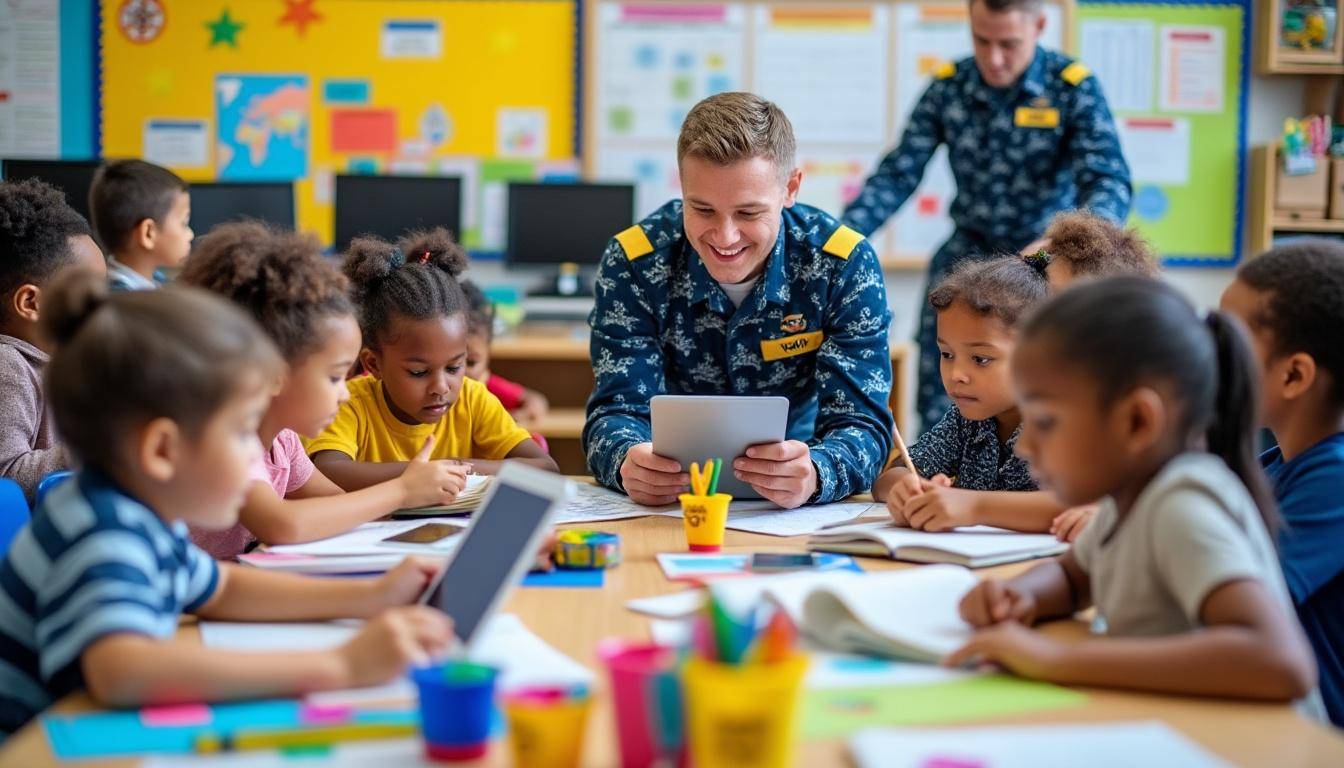Transitioning between schools can be a challenging experience, especially for children of military families who move frequently. Recognizing these unique hurdles, the Navy has significantly increased its dedication to supporting the educational journey of these youth. Through innovative programs, partnerships with school districts, and community-driven efforts, the Navy aims to smooth educational transitions and nurture academic success for military children nationwide.
How the Navy Strengthens Educational Support for Military Children in Transition
The Navy’s commitment to advancing education for children in military families has led to the development and reinforcement of comprehensive support systems that address the challenges of frequent school changes. These initiatives focus on minimizing disruption and ensuring consistent academic progress for youth navigating transitions.
- Memorandums of Agreement: Formal agreements between military installations and local school districts streamline transitions, making enrollment and curriculum alignment more seamless for transferring students.
- Interactive Counseling Centers: These centers provide immediate support to counselors and students, easing the integration process by familiarizing children with new academic and extracurricular activities.
- Teacher and Counselor Training: Specialized courses on military culture equip educators to better understand and accommodate the needs of military children, fostering an empathetic and inclusive environment.
- Collaboration with Educational Coalitions: The Navy partners with organizations like the Military Child Education Coalition to share best practices and resources that benefit the broader community of military families.
To delve deeper into parental involvement and its impact on resilience, explore how parental support fosters student resilience.
Addressing the Unique Challenges of Military Youth
Military children often face uncertainty caused by frequent relocations, which can lead to academic setbacks and social disconnection. The Navy acknowledges that these challenges demand tailored solutions beyond just academic support.
- Deployment-Related Support: Educators receive information about deployment cycles to better support children whose parents are serving abroad, helping to mitigate stress and maintain focus on learning.
- Special Education System Navigation: Assistance is provided to help families access necessary special education services, ensuring equitable educational experiences for all students.
- Community Mentorship Programs: Connecting youth with mentors offers social stability and guidance, enhancing personal growth alongside academic achievement.
- Scholarship Opportunities: The Navy promotes scholarships targeted at military children, providing financial support for higher education and rewarding academic commitment.
Parents and educators interested in enhancing school readiness can find valuable strategies on how parental support enhances school readiness.
Community Engagement and Collaborative Partnerships Boosting Educational Success
Recognizing that education is a community endeavor, the Navy actively fosters collaboration between military families, educational professionals, and local authorities. This collective effort creates a robust support network that benefits all stakeholders.
- Joint Venture Education Forums: These platforms facilitate dialogue between military representatives and local education boards to develop policies addressing military children’s needs.
- Military Culture Courses for Educators: Training programs raise awareness of military family dynamics, promoting cultural competency within schools.
- Grants and Funding for Transition Support: The Department of Defense’s grants, such as a notable $500,000 funding initiative, empower community-led research and program development focused on military child transitions.
- School Liaisons: Dedicated officers act as bridges between military families and educational institutions, providing personalized assistance throughout the transition process.
For parents and educators looking to cultivate a supportive learning environment at home, insightful guidance is available on fostering a supportive home environment for learning.
Future Directions in Navy Educational Support
The Navy’s ongoing commitment is driven by a philosophy that retaining families is just as crucial as recruiting service members. With military children averaging six school changes before high school graduation, the goal is clear: minimize disruption and empower youth through education.
- Expanded Scholarship Programs: Increasing financial aid availability broadens access to higher education for military youth.
- Enhanced Mentorship Networks: Developing mentorship initiatives supports youth in building resilience and pursuing career ambitions.
- Innovative Digital Solutions: Embracing educational technology for interactive learning and counseling aids smooth transitions and enriches academic engagement.
- Ongoing Assessment and Improvement: Regular evaluation of educational practices ensures adaptation to emerging needs of military children and their families.
Discover further insights about educational expansion through initiatives like the OMFA funding for educational expansion.


